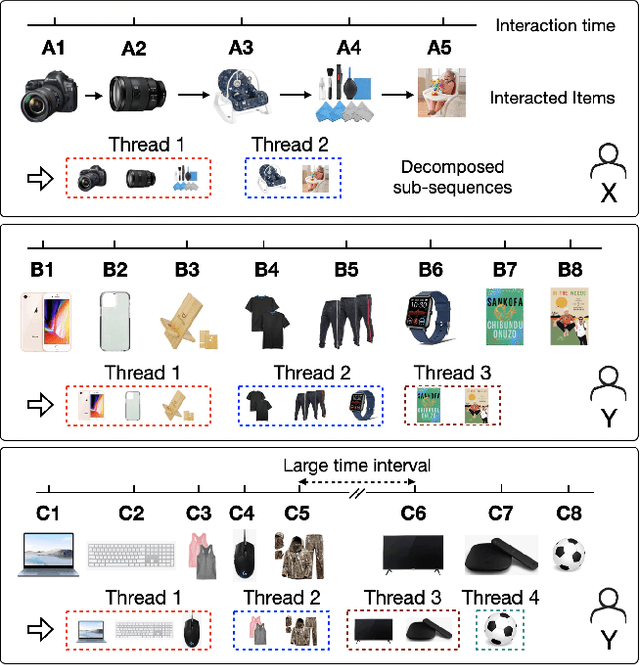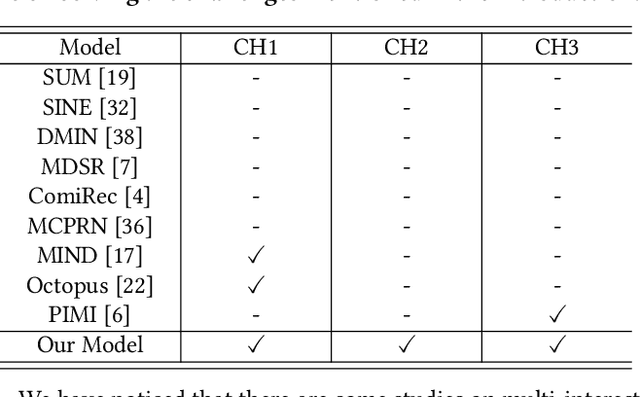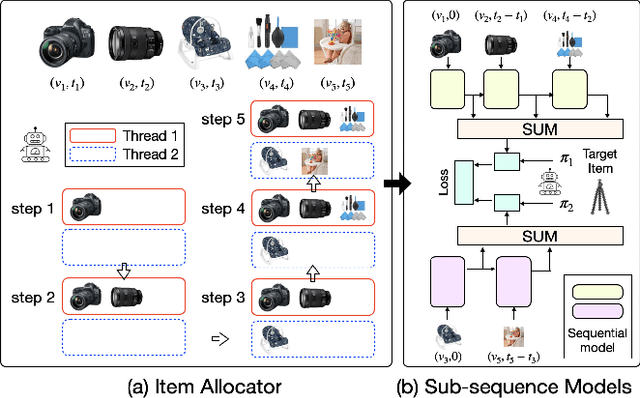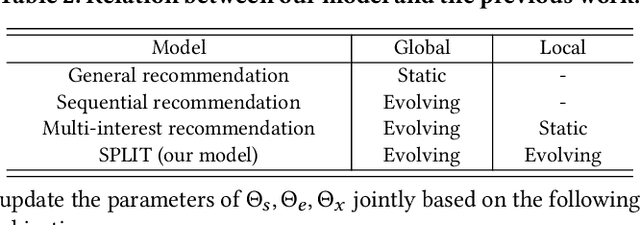Sequential Recommendation with User Evolving Preference Decomposition
Paper and Code
Mar 31, 2022



Modeling user sequential behaviors has recently attracted increasing attention in the recommendation domain. Existing methods mostly assume coherent preference in the same sequence. However, user personalities are volatile and easily changed, and there can be multiple mixed preferences underlying user behaviors. To solve this problem, in this paper, we propose a novel sequential recommender model via decomposing and modeling user independent preferences. To achieve this goal, we highlight three practical challenges considering the inconsistent, evolving and uneven nature of the user behavior, which are seldom noticed by the previous work. For overcoming these challenges in a unified framework, we introduce a reinforcement learning module to simulate the evolution of user preference. More specifically, the action aims to allocate each item into a sub-sequence or create a new one according to how the previous items are decomposed as well as the time interval between successive behaviors. The reward is associated with the final loss of the learning objective, aiming to generate sub-sequences which can better fit the training data. We conduct extensive experiments based on six real-world datasets across different domains. Compared with the state-of-the-art methods, empirical studies manifest that our model can on average improve the performance by about 8.21%, 10.08%, 10.32%, and 9.82% on the metrics of Precision, Recall, NDCG and MRR, respectively.
 Add to Chrome
Add to Chrome Add to Firefox
Add to Firefox Add to Edge
Add to Edge